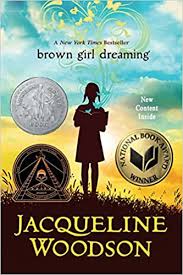This week I read "The Hate U Give" by Angie Thomas. This fictional story tells about teenage Starr straddling two worlds: her white, suburban school across town, and her home in a poor black neighbourhood. As Starr navigates who she needs to be in each setting, her worlds collide when she witnesses her best friend shot and killed by a police officer. Starr then struggles with how to stand up and let her voice be heard, and to be a voice for her friend who can no longer speak. Angie gives a voice to her protagonist that jumps from the page as if she was sitting in the room with you.
The real coup d'état in the writing, and the difficult truth to navigate personally, was that I had to keep reminding myself this is a fictional story. The heartbreaking tale rings so close to the news stories that have filled the airways these past years. I know that the mothers, sisters, brothers and friends dealing with the tragedy in the story represent real people dealing with real heartbreak.
Angie gives voice to the inner thoughts of Black people experiencing racism and police violence. The reader gets to hear what it is like to walk through a white world and question yourself, doubt your actions, and guard your thoughts. The story is a reminder to someone like me (white, middle class) that the world I enjoy is not enjoyable to all. It's hard to imagine someone walking the halls of my high school may have been dealing with the poverty, racism, and violence portrayed in this story. My naivety is painted across my face and every time I feel it is scrubbed away it only reveals another layer.
In the author's own words:
"Black Jesus, watch over my babies today," [Daddy] says. "Keep them safe, steer them from wrong, and help them recognize snakes from friends. Give them the wisdom they need to be their own people. Help Seven with this situation at his momma's house, and let him know he can always come home. Thank you for Sekani's miraculous, sudden healing that just so happened to come after he found out they're having pizza at school today." I peek out at Sekani, whose eyes and mouth are open wide. I smirk and close my eyes. "Be with Lisa at the clinic as she helps your people. Help my baby girl get through her situation, Lord. Give her peace of mind, and help her speak her truth this afternoon."
"I get out the car. For at least seven hours I don't have to talk about One-Fifteen [the police officer]. I don't have to think about Khalil. I just have to be normal Starr at normal Williamson [school] and have a normal day. That means flipping the switch in my brain so I'm Williamson Starr. Williamson Starr doesn't use slang - if a rapper would say it, she doesn't say it, even if her white friends do. Slang makes them cool. Slang makes her "hood." Williamson Starr holds her tongue when people piss her off so nobody will think she's the "angry black girl." Williamson Starr is approachable. No stank-eyes, side-eyes, none of that. Williamson Starr is non confrontational. Basically, Williamson Starr doesn't give anyone a reason to call her ghetto."














